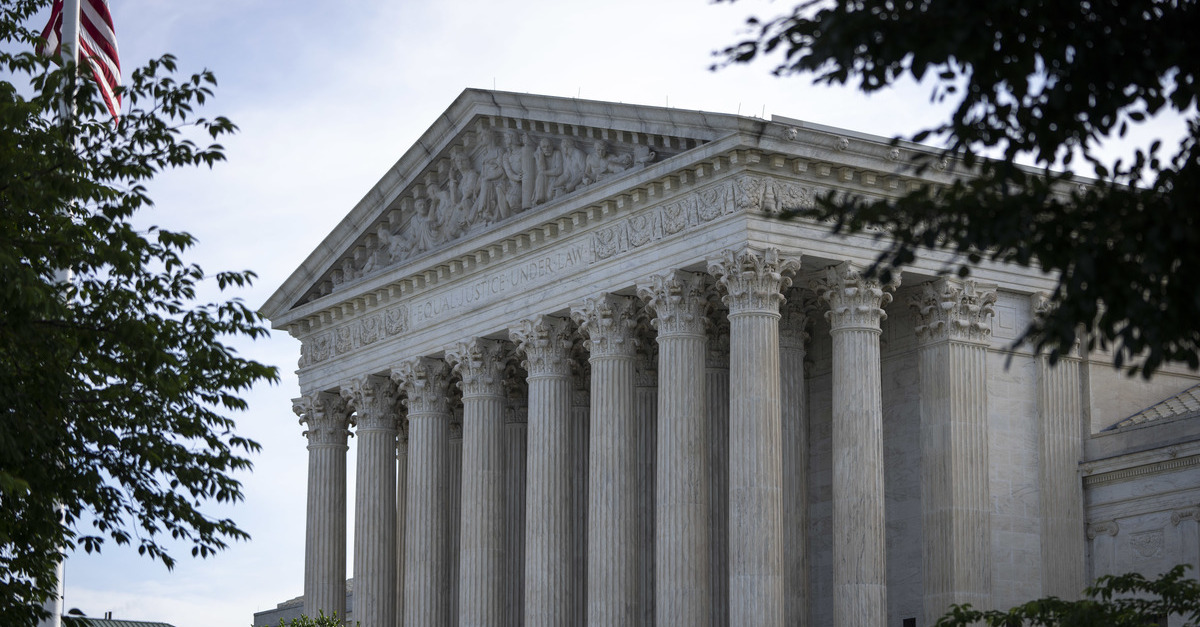
Less than a month after the Supreme Court refused to block a Texas anti-abortion law, providers in that state requested “immediate review” of their case on the merits. Abortion providers brought a message for the justices: “Texans are in crisis.”
“Faced with the threat of unlimited lawsuits from the general populace and the prospect of ruinous liability if they violate the ban, abortion providers have been forced to comply,” their 50-page petition for a writ of certiorari states. “As a result, Texans with means must now travel hundreds of miles each way to other States during a pandemic, just to exercise a clearly established federal right.”
On Sept. 1, the Texas law — perhaps best known by its legislative name S.B. 8 — took effect after the Supreme Court’s right flank decided in a 5-4 ruling that the case presented “complex and novel antecedent procedural questions” too weighty for a grant of immediate relief. The court’s liberal wing, joined by conservative Chief Justice John Roberts, viewed the “not only unusual, but unprecedented” statutory scheme as a dodge to avoid court oversight.
The law, signed into effect by Gov. Greg Abbott (R) in May, effectively bans abortions when embryonic cardiac activity becomes detectable. That occurs approximately six weeks into a pregnancy and before many opponents of the measure say some women are even aware that they are pregnant. If enforced by the government, such laws would clearly flout longstanding Supreme Court precedents like Roe v. Wade and Planned Parenthood v. Casey, but the state of Texas claims that S.B. 8’s novel private enforcement mechanism protects it from such scrutiny.
The crux of the abortion providers’ challenge — led by the Virginia-based company Whole Women’s Health, which operates clinics in four Texas cities — asks the high court to decide whether state lawmakers can insulate laws from federal judicial review by deputizing private citizens to file civil litigation.
“The question presented is whether a State can insulate from federal-court review a law that prohibits the exercise of a constitutional right by delegating to the general public the authority to enforce that prohibition through civil actions,” their petition states.
In a statement on the Supreme Court petition, Whole Woman’s Health president and CEO Amy Hagstrom Miller emphasized the real-world consequences underlying abstractions of standing.
“For 23 days, we’ve been forced to deny essential abortion care for the vast majority of patients who come to us,” Miller said in a statement. “Most of those we’ve turned away told us they would not be able to make it out of Texas for care. I don’t know what happened to these patients after they left our clinics, but I can’t stop thinking about them. Forcing our staff to tell patients ‘no’ day after day is cruel. This chaos must come to an end, and that is why we are going back to the Supreme Court today.”
As chronicled in the petition, the law has burdened not only Texas abortion providers but the health care systems of other U.S. states.
“The surge of Texans seeking out-of-state appointments for this time-sensitive medical care is causing backlogs in those States, delaying abortions by weeks for Texans and non-Texans alike,” the petition continues. “Many Texans, however, lack the financial means to travel out of state or are unable to secure childcare or the necessary time off work to do so.”
Two dozen Democratic attorneys general also complained of “untenable strain” on the system in an amicus brief supporting the Biden administration in a separate case.
“In New Mexico, for example, an influx of patients from Texas has already strained provider resources and made it more difficult for New Mexico residents to receive timely care,” the attorneys general wrote in a friend-of-the-court brief earlier this month. “Similar impacts are being seen or expected to be seen in other amici States, including California, Colorado, Illinois, and Nevada.”
Julia Kaye, who represents the providers as a staff attorney with the ACLU Reproductive Freedom Project, slammed the five conservative justices who refused to block S.B. 8 from taking effect. She urged the court to reverse course and correct what she described as a “grave injustice.”
“For half a century, the Supreme Court has upheld the fundamental right to end a pregnancy. But for the past three weeks, five justices have shrugged their shoulders while Texas politicians do an end-run around the Constitution and impose devastating harm on countless Texans, especially people of color,” Kaye wrote in a statement. “Already, politicians in other states are lining up to propose copycat bills that insult the Constitution, turn neighbor against neighbor, and force people to suffer the serious risks and pains of pregnancy against their will.”
The ACLU lawyer was referring to a nearly identical bill already introduced in the Florida legislature.
“It is past time for the Supreme Court to step in and right this grave injustice,” Kaye added.
The petition falls shortly after a trio of Republican-appointed U.S. Circuit judges declined to block S.B. 8 by citing the same rationale the Supreme Court’s conservative wing used earlier this month.
Read the petition below:
(Photo by Drew Angerer/Getty Images)
Have a tip we should know? [email protected]